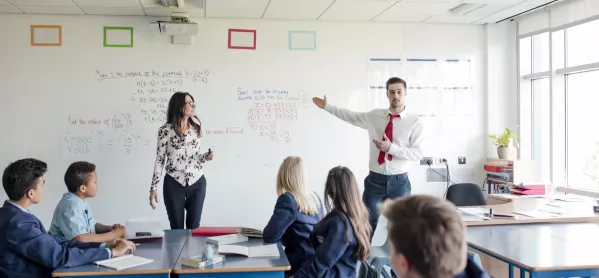The attainment gap between the richest and poorest pupils is “not closing”, despite efforts to improve teaching and change the curriculum, the government’s Social Mobility Commission has warned.
And the government has failed to make sufficient progress on more than three in five education-related recommendations made by the commission in the past seven years, according to the commission’s new report.
The study, which contains an analysis of 52 proposals made by the commission between 2013 and 2020, found a “disappointing level of progress” from successive governments on social mobility.
Charity: Teachers need training in online lessons
Coronavirus: Most vulnerable pupils not in school over lockdown
Williamson: Delay school openings and pupils ‘miss out’
Of the 18 recommendations relating to education, government departments had taken “no or very little action” on five, made “some but insufficient progress” on six, and delivered or made “strong progress” on seven.
The commission found good progress had been made on supporting parents from disadvantaged backgrounds with help for home learning, and in eradicating illiteracy and innumeracy at primary level.
However, it also identified several areas of “major concern” where governments had failed to deliver, including closing the attainment gap between the richest and poorest pupils at 16.
“Education is seen as the key to boosting social mobility, but there are still persistent attainment gaps between those from disadvantaged and better-off backgrounds at all stages of schooling,” the report said.
“There has been some success in eliminating innumeracy and illiteracy at primary school. But the attainment gap between rich and poor at 16 is not closing, despite efforts to improve teaching and change the curriculum.”
The commission said it was “imperative that improvements in social mobility are integrated into the way we regroup and rebuild” after the coronavirus crisis, including creating a “better social mix” in schools.
“Children gain from the broad range of backgrounds of their peers, and this diversity particularly helps the academic achievement of less advantaged groups,” the report said.
The commission said the analysis as a whole exposed the “lack of joined-up thinking and activity across Whitehall which is impeding progress on social mobility”, and concluded that a “dedicated unit” should be set up at the “heart of government” to ensure it delivers on recommendations.
Dame Martina Milburn, outgoing chair of the commission, said: “Social mobility has never been more important. It is the poor and the young who will suffer most from the economic downturn.
“To succeed, action will need to be driven from the heart of government. At present, there is no meaningful coordination between departments on the social mobility agenda, and no single force championing social mobility across the government.”
A government spokesperson said: “We are pleased the commission recognises progress in areas such as improving life chances for poorer groups, boosting mental health support for young people, and keeping disadvantaged pupils in education for longer.
“We remain committed to levelling up opportunity across the country, and continue to do all we can to make sure no one is left behind as a result of coronavirus.
“From the start of the outbreak, all vulnerable children have been able to attend school and we have provided over £100 million to support children to learn at home.
“We also continue to invest significantly in schools and early years, alongside raising wages and increasing work incentives for the lowest paid families.”




